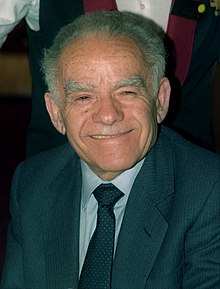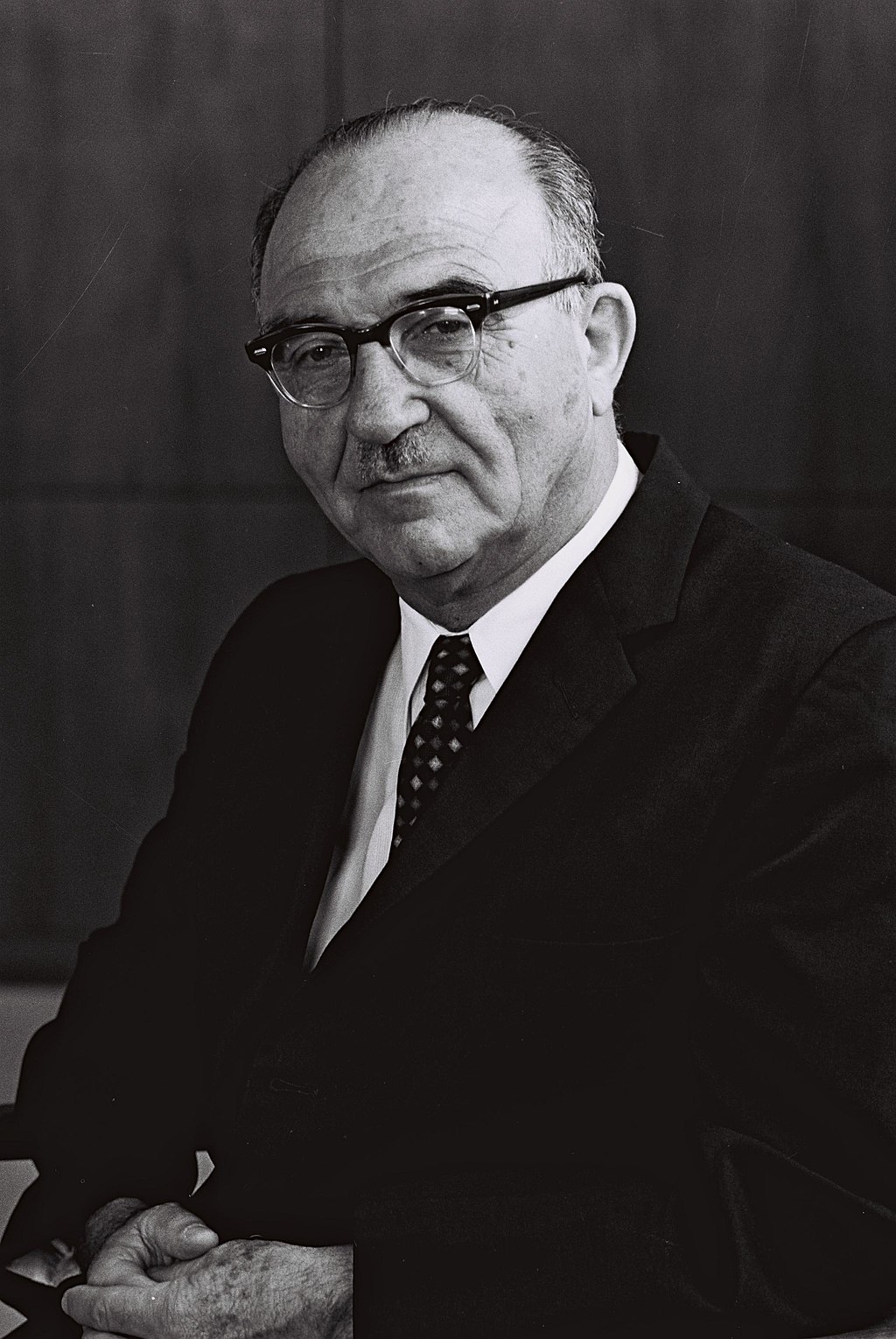Introduction
Yitzhak Shamir was a steadfast and determined leader who served as Israel’s Prime Minister during some of the country’s most challenging times. Born on October 22, 1915, in Ruzhany, then part of the Russian Empire (now Belarus), Shamir was known for his uncompromising stance on Israel’s security and his resistance to international pressure. He served as Israel’s Prime Minister twice, from 1983 to 1984 and from 1986 to 1992, and left a lasting impact on Israeli politics through his unwavering commitment to the nation’s defense.
Early Life and Role in the Underground
Shamir was born Yitzhak Jazernicki and emigrated to Palestine in 1935. He joined the Irgun, a paramilitary organization dedicated to the establishment of a Jewish state, and later became a leader in the more radical Lehi group, also known as the Stern Gang. During his time in the underground, Shamir was involved in numerous operations against British forces in Palestine, advocating for the end of British rule and the establishment of an independent Jewish state.
Shamir’s experiences in the underground deeply influenced his worldview, fostering a belief in self-reliance and skepticism towards international intervention. He was imprisoned by British authorities but managed to escape, continuing his activities until the establishment of Israel in 1948.
Political Career and the Mossad
After Israel’s independence, Shamir joined the Mossad, Israel’s intelligence service, where he served for nearly a decade. He later transitioned into politics, joining the Herut party, which eventually became part of the Likud party. Shamir entered the Knesset in 1973 and rose through the political ranks, serving as Speaker of the Knesset and later as Foreign Minister under Menachem Begin.
As Foreign Minister, Shamir was instrumental in negotiating the peace treaty with Egypt, although he remained skeptical of territorial concessions. He succeeded Begin as Prime Minister in 1983 and became known for his cautious and conservative approach to foreign policy and security issues.
Prime Ministership and Policies
Yitzhak Shamir’s tenure as Prime Minister was marked by his staunch opposition to the concept of ‘land for peace.’ He believed that relinquishing territory would endanger Israel’s security and was wary of the intentions of Israel’s neighbors. During his second term, Shamir faced significant international pressure, particularly from the United States, to enter into peace negotiations with the Palestinians.
Shamir eventually agreed to participate in the Madrid Conference in 1991, the first direct negotiations involving Israel, the Palestinians, and neighboring Arab countries. While he was reluctant to make substantial concessions, his participation in the talks was a significant step towards the peace process that would evolve in the following years.
The Gulf War and Immigration
During the Gulf War in 1991, Iraq launched Scud missiles at Israel in an attempt to provoke an Israeli military response that might fracture the coalition against Saddam Hussein. Shamir made the difficult decision to heed U.S. requests for restraint, demonstrating his commitment to maintaining international alliances even in the face of attacks.
Shamir also presided over a period of significant immigration to Israel, including the mass airlift of Ethiopian Jews during Operation Solomon in 1991. He viewed the ingathering of Jews from around the world as a central part of Israel’s mission and worked tirelessly to facilitate their integration into Israeli society.
Legacy and Impact
Yitzhak Shamir retired from politics in 1996 but remained an influential figure until his death in 2012. He is remembered for his tenacity, his dedication to Israel’s security, and his belief in the importance of a strong and united Jewish state. Shamir’s leadership style was characterized by his unwillingness to compromise on issues he deemed essential to Israel’s survival.
Though his tenure was often marked by a lack of major diplomatic breakthroughs, Shamir’s focus on security and self-reliance left a lasting mark on Israeli politics. He remains a symbol of determination, embodying the resilience that has been a hallmark of Israel’s history.



